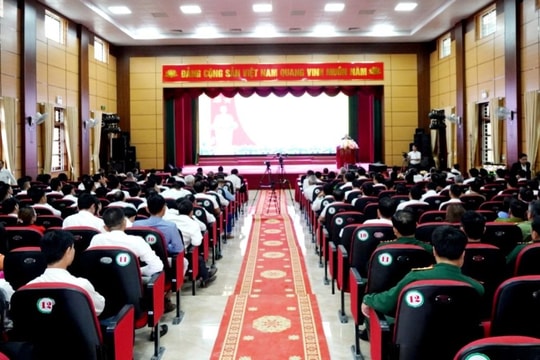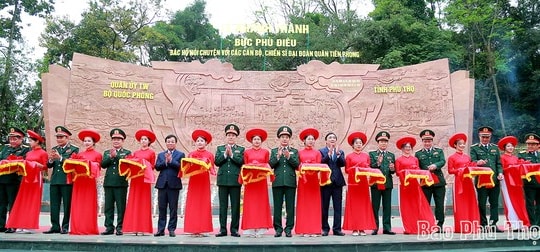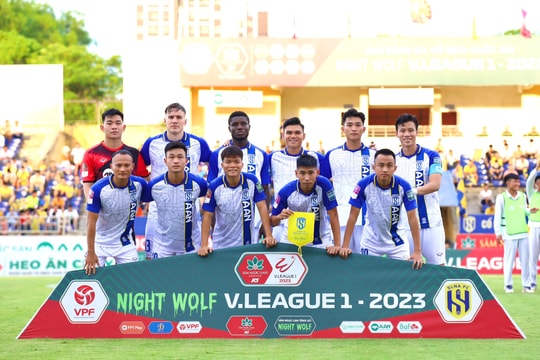Homeland and family traditions with the formation of personality and patriotic ideology of President Ho Chi Minh
134 years ago (May 19, 1890), in Hoang Tru village, Kim Lien commune, Nam Dan district, Nghe An province, an outstanding son of the Vietnamese people cried out at birth. He was President Ho Chi Minh - the genius leader of the Party and the nation, the great teacher of the Vietnamese revolution, the national liberation hero, the exemplary international communist soldier, the outstanding cultural celebrity. He "brought glory to our nation, our people and our country".
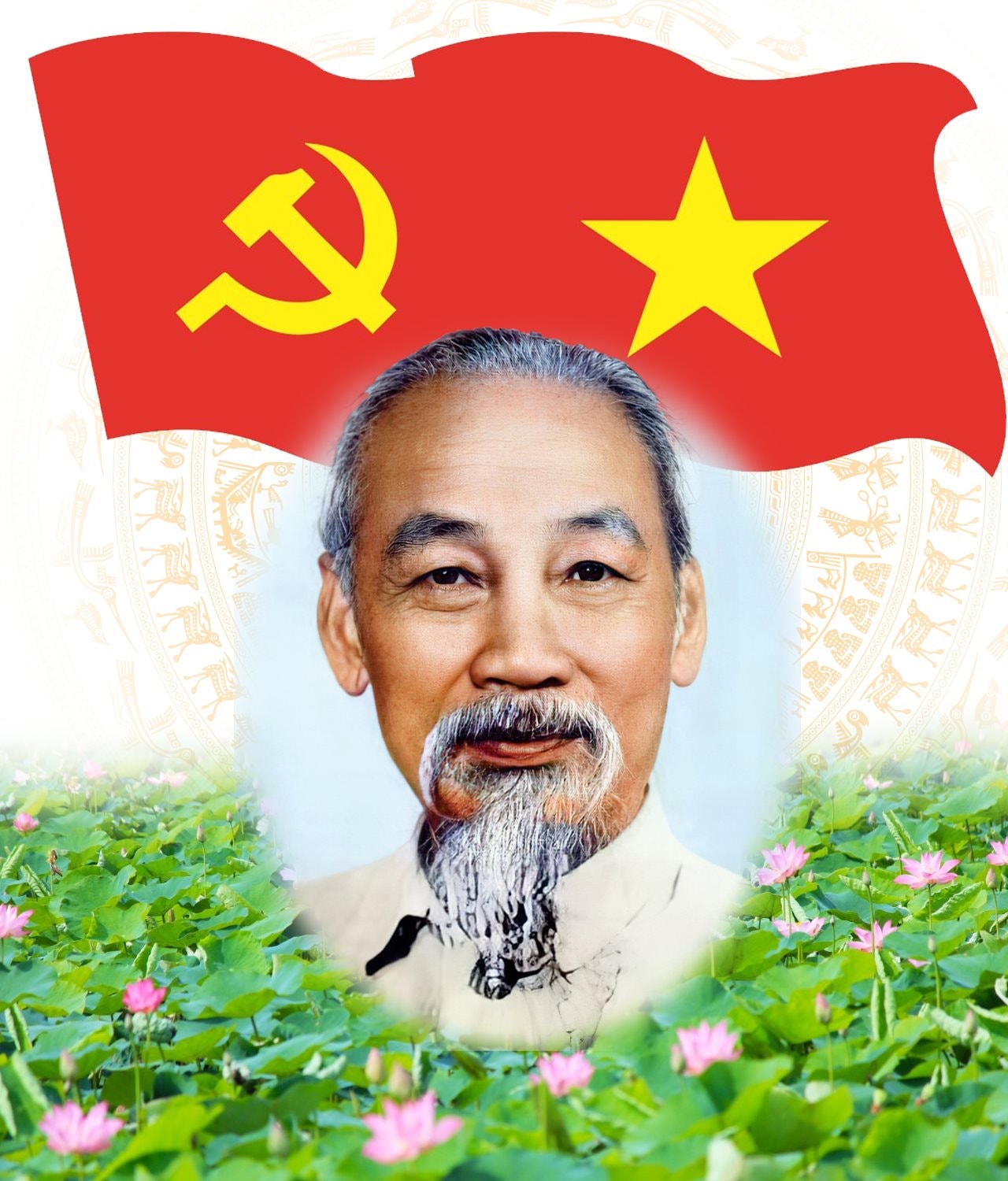
Ho Chi Minh was born into a poor family with a tradition of Confucianism and peasant origins that highly valued traditional ethics, education, and methods of educating children. Family members from grandparents, parents, aunts, nieces, nephews, and siblings were all close, supportive, loving, and sacrificed for each other, and were very close, friendly, and united with neighbors.
A family not only teaches children by words but also by actions, by exemplary examples of parents, grandparents to their children, older siblings to their younger siblings. It can be said that family is the first factor that forms the noble personality and love for the homeland of Uncle Ho later on.
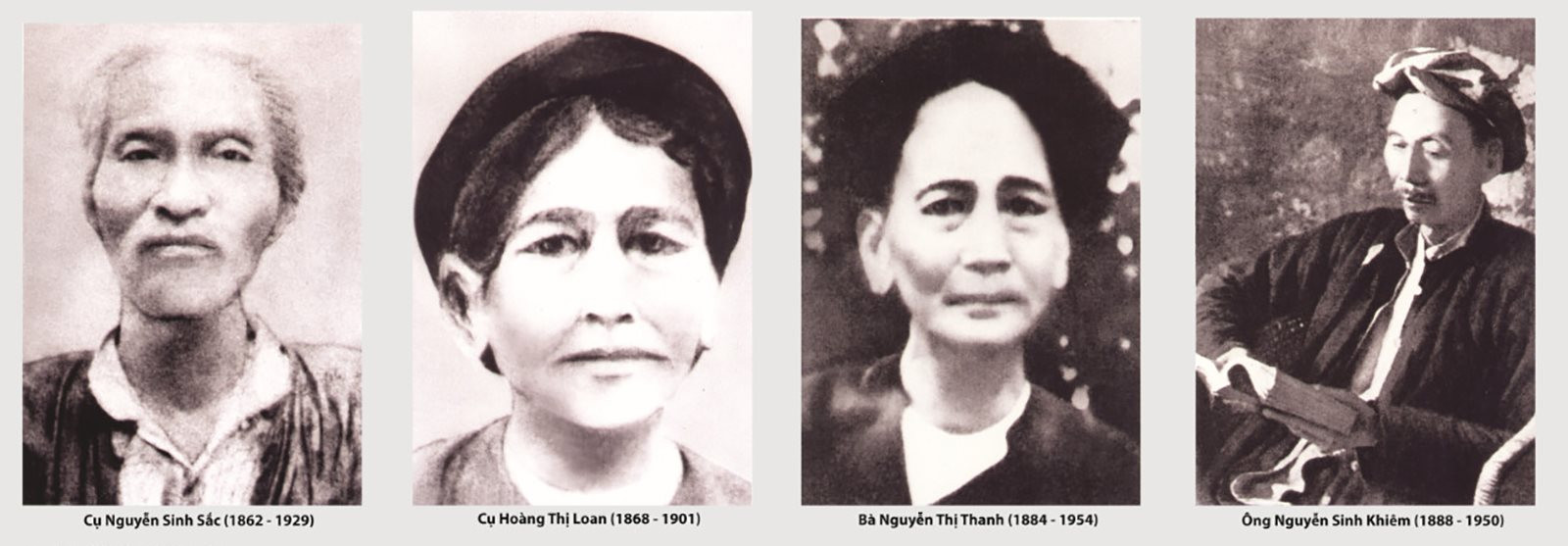
Uncle Ho's maternal grandfather was a virtuous and benevolent teacher. He took care of, raised and educated his father (Nguyen Sinh Sac). He worked hard to teach him, tutored him and even sent Nguyen Sinh Sac to study with Mr. Nguyen Thuc Tu in Nghi Loc, Nghe An - a famous teacher in Nghe Tinh at that time to help him continue to develop further.
Later, out of admiration for the virtue and talent of his poor student, overcoming the old feudal etiquette of “social status and family background”, he married his daughter Hoang Thi Loan to Nguyen Sinh Sac. A shining example of compassion and love for people overcoming the rich-poor distinction of feudal society at that time.
It is not easy to find a role model of a wife and mother like Ms. Hoang Thi Loan - a hard-working rural woman who worked hard day and night in the fields and weaving to support her husband's education and raise her children.
The woman, for the sake of her husband's future and her children's happiness, bravely went beyond the bamboo fence of the village to the Imperial City of Hue, helping her husband to study and take care of her children. The sweet songs and lullabies containing the mother's love or the image of a mother wearing areca palm sandals, carrying a load on her shoulders, one carrying her child, the other carrying all her possessions, overcoming many hardships and dangers, climbing mountains and wading streams, never faded in the mind of the boy Nguyen Sinh Cung - Nguyen Tat Thanh.
She passed away at the age of 33, full of youthful beauty, after 18 years of living with her husband and children, caring for them, raising them, and loving them. The beautiful, noble images and warm, touching feelings about her mother are forever imprinted in Uncle Ho's mind.
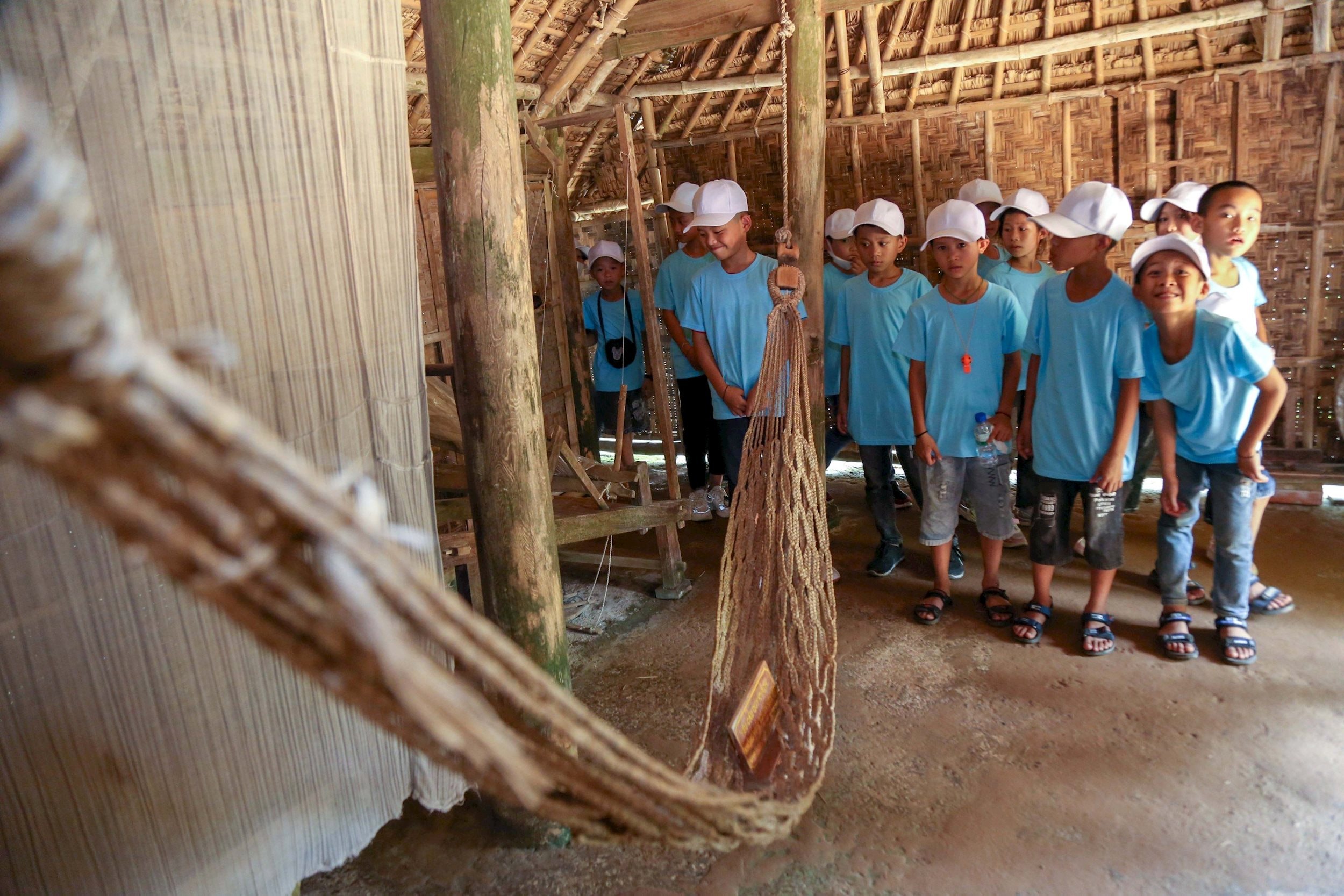
Uncle Ho's father, Nguyen Sinh Sac, lost his parents at the age of 4. He lived an independent and difficult life from a young age. Thanks to the care of Mr. Hoang Duong, he had a profound knowledge of Chinese studies and Confucianism combined with the traditional morality and culture of the nation. With a noble personality, he lived a simple, honest life, loved his country, loved his people, and hated the colonial lackeys.
Whether living in his hometown or in the capital Hue, he always taught his children with the motto“Don't take the official's family style as your own family style.”Therefore, when he passed the Phó bảng exam and returned to Lang Sen to live, or during his years in Hue holding the position of “Ministry of Rites” (Ministry of Rites), he always maintained a simple and frugal lifestyle. Not having the means to shop like rich families, father and son bought salted shrimp and fish to eat gradually.
In 1906, the Nguyen Dynasty court called him to be an official "Minister of Rites". Although he always maintained a cheerful attitude on the outside, he was still restless inside. Living in the officialdom, he bitterly realized that“The officialdom is a slave among slaves, even more slaves” (rough translation)Once, understanding the hardships of being an official under a feudal dynasty, he wrote a letter to his nephew Nguyen Sinh Ly to share his feelings at that time.
(Temporary translation)
"Life is like a big dream
Life is like a passing cloud
Prestige is not enough to rely on
Danger is self-harm.
"Be careful! Be careful!"
Mr. Nguyen Sinh Sac, a model of strong will, overcoming hardships and difficulties. The father always paid attention to educating his son on ideals, ethics, knowledge and cultivating his will. Surely this personality had a profound influence on the thinking, path and ideology of Nguyen Tat Thanh later on.
.jpg)
The second factor is the tradition of the homeland, the influence of patriotic scholars of Nguyen Tat Thanh's ancestors.
Ho Chi Minh was born and raised in a countryside rich in cultural and revolutionary traditions. That countryside, throughout the history of building and defending the country, constantly faced countless challenges and destruction caused by wars and natural disasters. In pain, it was still brave, in loss, it was still resilient, in poverty, it was still "clean from hunger, fragrant from rags"; it was "the land of fences", "the land of Coi Ke", "the hot fields and citadels of the country".
During the resistance war against the brutal Yuan-Mongol invaders who had rampaged across a vast land from Asia to Europe, when the country was in dire straits, with life and death hanging by a thread, King Tran Nhan Tong still believed:Old story Coi Ke you should remember, that Hoan Dien still has hundreds of thousands of soldiers (temporary translation)). Looking at the history of the nation, great names such as Mai Hac De, Ho Quy Ly, Nguyen Hue - Quang Trung, Nguyen Du, Ho Xuan Huong, Nguyen Cong Tru, Phan Dinh Phung, Phan Boi Chau, Nguyen Truong To... were either born or started their careers and became famous in this place.
When Uncle Ho cried out at birth, the smoke of the Can Vuong movement, on the other side of the Lam River arose the uprising of Phan Dinh Phung, Nguyen Xuan On. Right in Chung Mountain, in front of the house was Coc well, where the French colonialists ordered to drain water to find weapons of the "Chung Nghia Binh". When they suppressed the uprising of Vuong Thuc Mau (1886). The image of the hero of the homeland, the friend of his grandfather who sacrificed right in the village to preserve his integrity once deeply moved the heart of the young Nguyen Tat Thanh.
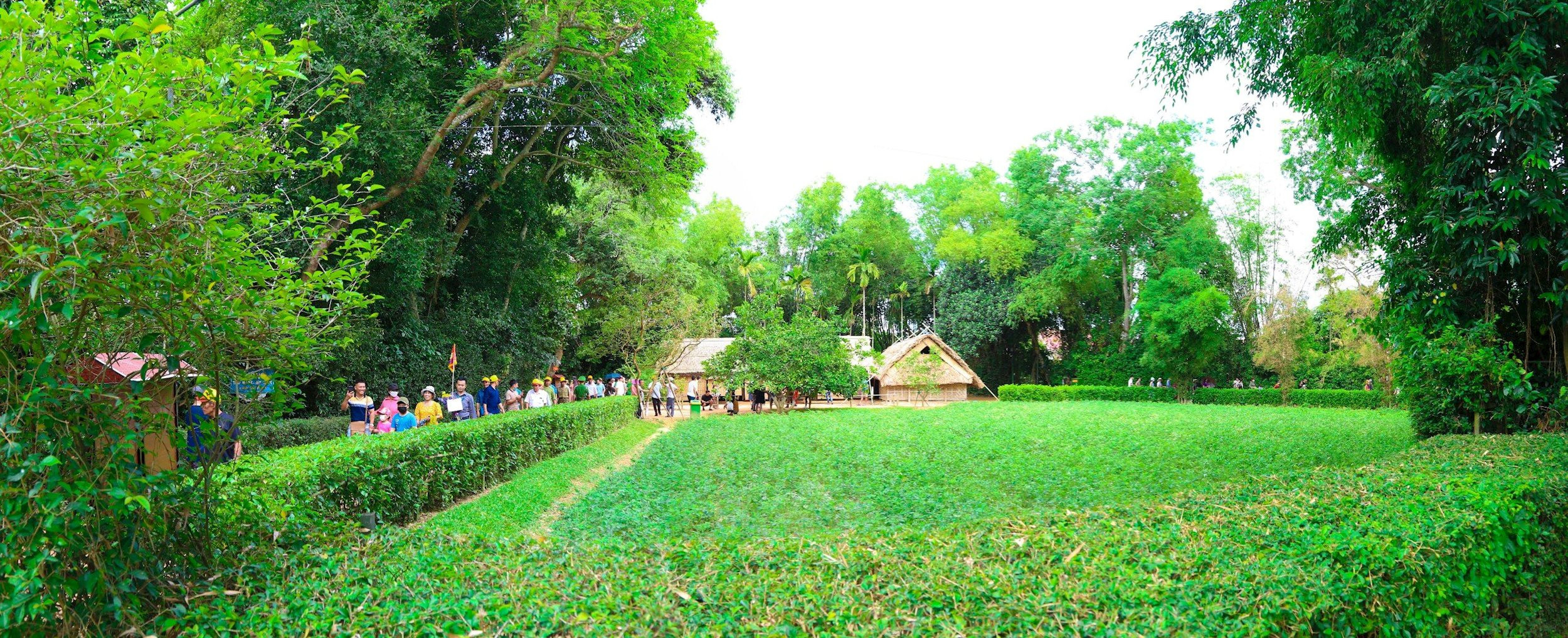
Nguyen Tat Thanh returned to live in Sen Village and listened to his father's discussions on literature and world affairs with Confucian scholars such as Phan Boi Chau, Vuong Thuc Quy, and Dang Thai Than. This kindled in the hearts of Uncle Ho, his sister, and his brother a passionate love for the country and a deep hatred for the enemy.
At the end of 1901, Nguyen Tat Thanh was sent by his father to study with the bachelor Vuong Thuc Quy, son of Vuong Thuc Mau. Bearing heavy grudges against his family and country, the teacher taught his students and secretly linked up with patriots seeking to fight the French. He joined the "Scholars Who Can King" team founded by Phan Boi Chau and Tran Van Luong.
In July 1901, Bachelor Vuong Thuc Quy participated in a surprise attack on Nghe An citadel with Phan Boi Chau. The incident was exposed and he escaped with the help of Nghe An Governor Dao Tan. He participated in the establishment of Duy Tan Association, actively mobilized financial donations and recruited young people for Phan Boi Chau's Dong Du movement... His lectures always contained feelings of patriotism and hatred for the enemy.
Learning about the passionate patriot Phan Boi Chau, it can be said that he had a significant influence on the family of Nguyen Tat Thanh. Mr. Sac - Uncle Ho's father was very impressed with Mr. Phan for his patriotism and love for the people. Ms. Thanh and Mr. Khiem later had activities following Mr. Phan's example. As for Mr. Nguyen Tat Thanh himself, he heard many stories and memorized many poems filled with his patriotism. There are two ancient poems by Vien Mai that Mr. Phan Boi Chau often recited while drinking wine:Each meal is not forgotten, only bamboo and white/ The lowest way to establish a career is literature…”,Meaning: "Every meal do not forget to write history books/ To establish the humblest life is literature".The intention is to advise scholars and young people to give up the outdated path of examinations to focus on saving the country. The poem had a great impact on Nguyen Tat Thanh and contributed to guiding the young man to have great ambitions early on, which he still remembered long after.
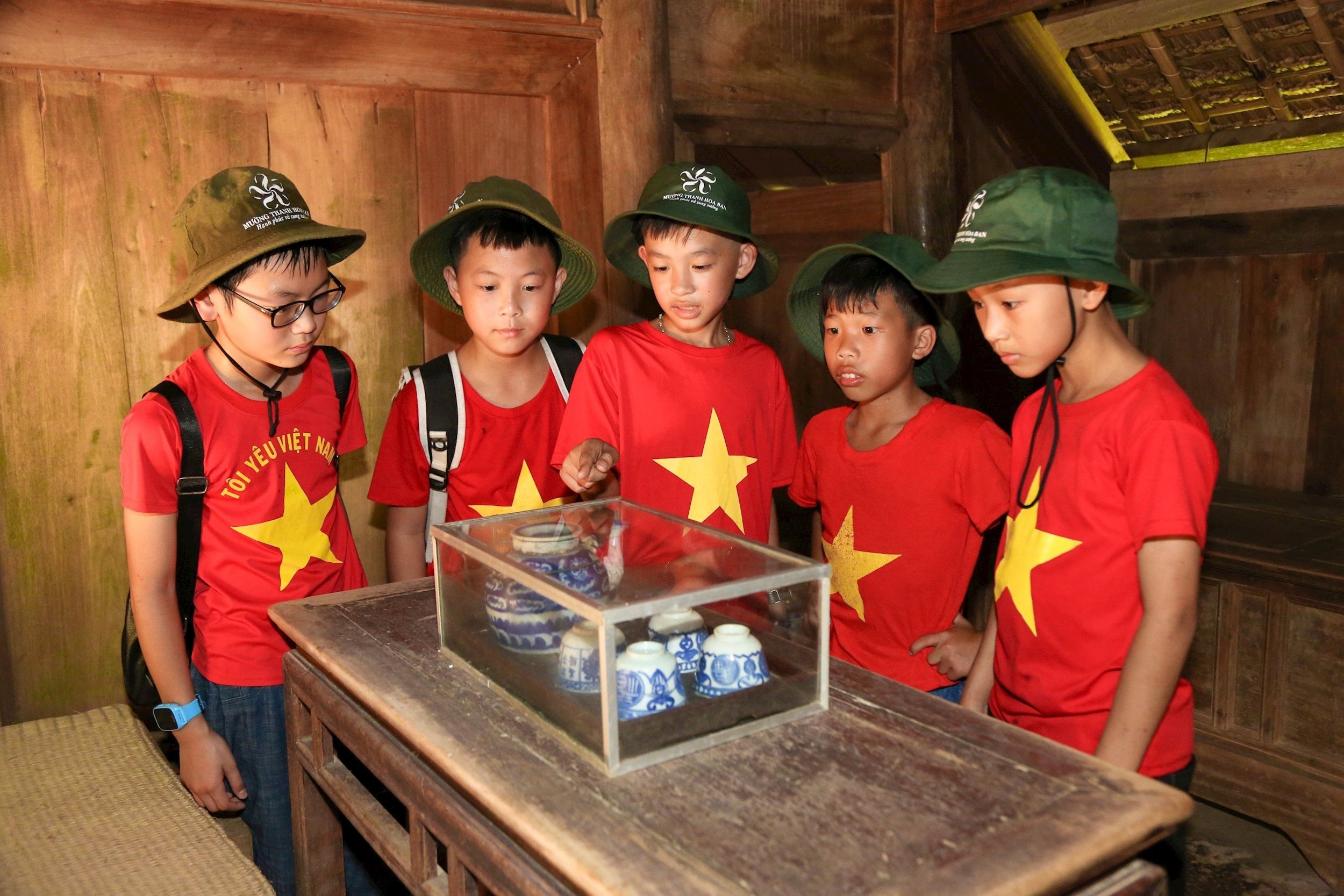
After passing the Phó bảng exam, he refused to become an official because his wife had just died and stayed in his hometown. In addition to teaching, Mr. Sac also traveled to many places in the province and Ha Tinh, sometimes even to Kien Xuong, Thai Binh. On those trips, he often took his son Nguyen Tat Thanh along.
The places that father and son visited during that journey: The hometown of Bang Bien Tran Tan, leader of the Van Than uprising (1874), Duc Tho, Ha Tinh - the hometown of Le Ninh; Huong Son (Ha Tinh) the base of Phan Dinh Phung's uprising; Vo Liet (Thanh Chuong), where the "New Book" was being discussed enthusiastically; Dien Chau (Nghe An), the hometown of a Thanh Hoa district chief who had resigned from office; Quynh Doi (Nghe An), a place famous for many people who studied well and achieved high scores. And further away was Kien Xuong (Thai Binh) where he met many friends, including Nguyen Quang Doan (son of patriot Nguyen Quang Bich).
So why did Mr. Sac let him travel so much? At that time, Tat Thanh did not necessarily understand it thoroughly, but these were useful and important lessons, seen and heard, experiences, and provisions... that contributed to the formation of Nguyen Tat Thanh's patriotism and revolutionary aspirations later on.
Thus, the cradle of the homeland with a rich tradition of indomitability and its own identity of Nghe An created in Nguyen Tat Thanh a love for the country and people, a hatred for the enemy, highly stimulating Tat Thanh's will, helping him to have new awareness, new feelings, new determination, and new vision.
The first teacher of Nguyen Sinh Cung (Uncle Ho's birth name), who was also the father of Nguyen Sinh Sac, was a shining example of the will to overcome difficulties in studying and an exemplary teacher in teaching letters and people.
In extremely difficult circumstances, he taught and worked with his wife to raise his children. He diligently studied on his own and passed the bachelor's degree in 1894, when Uncle Ho (Nguyen Sinh Cung) was 4 years old. In 1895, he brought his whole family to the capital to continue studying for the Hoi exam. From that year, while studying on his own and teaching extra classes, and helping his wife weave to earn a living, he began to teach his children to study the books of the sages.
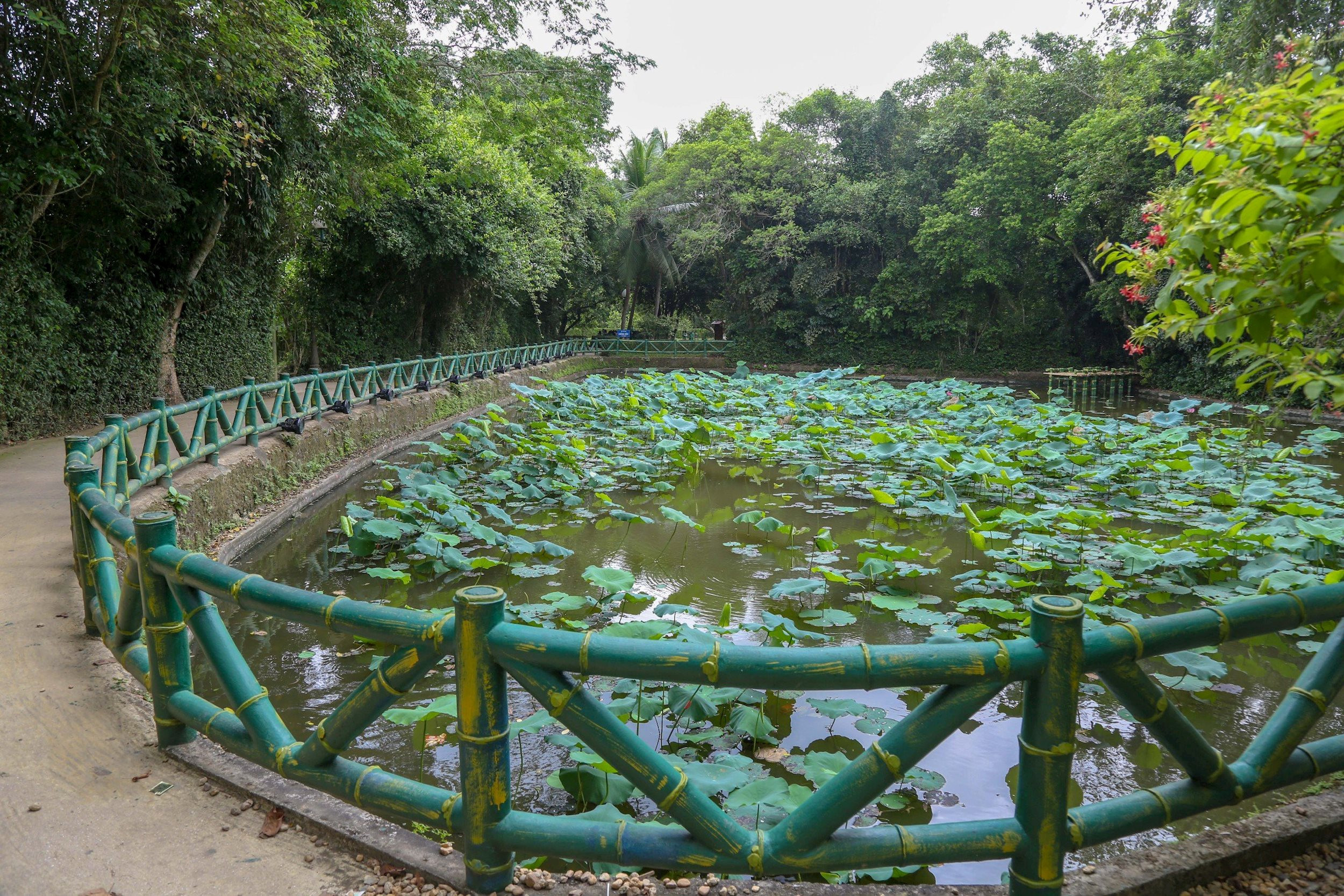
Seeing the inadequacy of old books, he bought two more sets of “So hoc van tan” and “Au hoc ngu ngon thi” compiled by Southerners for Southerners to study to train his children. Nguyen Sinh Cung remembered everything he learned, and always discussed many things, comparing them with things he saw and heard that were contrary to morality in the capital, asking his father, who answered and explained them in detail. Every day, he woke up early to clean the house and review his lessons, helped his mother with work in the morning and afternoon, and practiced reading and writing until late at night.
The lessons his father taught him were practical lessons and valuable experiences that helped shape Nguyen Tat Thanh's future path.
From 1901, Nguyen Sinh Cung's second teacher was Bachelor Vuong Thuc Quy, who taught him during the years he returned to Lang Sen. He did not teach according to the book, reciting chapters and quoting verses, but borrowed positive passages to teach his students about human morality, knowing how to live for the benefit of the country and the people, praising the chivalry of heroes who sacrificed themselves for a great cause and cursing the enemies who invaded the country.
To instill patriotism and hatred for the enemy in his students, every day the teacher often lit lamps and burned incense on the altar of his father before teaching. Once, when lighting the lamps, he accidentally spilled oil on the altar. On this occasion, he gave a couplet to ask his students to express their feelings. The couplet was:“Light the lamp, oil spills on the lampstand”. A game that is sensitive right away:"The incense is burned, the wind blows it away."You guys praised the good couplet. Nguyen Sinh Cung also wrote a couplet with profound content as suggested by his teacher:"Riding a horse straight from Jin to Tang", which means both to go straight on the road, to show one's will, and also to mean the Jin Dynasty established the throne, the Tang Dynasty established the throne. Teacher Quy always remembered this couplet and when he sent the father and son of the Vice-Chancellor on their way to Hue for the second time, he repeated it and wished his student to "go straight on the road", to have confidence in his future.
There were other teachers who did not directly teach Nguyen Sinh Cung but influenced and impacted his patriotism and his path to save the country later. These were many patriotic scholars who had relationships with their fathers. First of all, there were the "Four Tigers of Nam Dan", not including teacher Quy who taught him, the "Four Tigers" recorded in the legend of Nghe An were:
(Temporary translation)
No one is as knowledgeable as Phan Van San;
No one is as talented as Vuong Thuc Quy;
No one remembers as long as Tran Van Luong;
No one is as smart as Nguyen Sinh Sac.
Mr. Giai Nguyen (first place in the regional examinations) Phan Van San, also known as Phan Boi Chau, was considered a god of poetry and often discussed with Mr. Sac. Uncle Cung stood there serving tea and was very fond of his patriotic poems. What made both Nguyen Sinh Sac and his son think deeply was that many times when discussing studies, Doctor Nguyen Quy Song often said: "Now if we want to fight the French, we must understand the French, so we must learn the French language."
The instructions from his teachers and his fathers and uncles about the nation's tradition of fighting invaders to protect the country were not enough to satisfy the many things he wanted to know, so he read the history books that Phan Boi Chau introduced and even invited his friends to go to Vinh city to buy "Nam su", which are books about our country's history...
With progressive thinking and disgust for the mandarin world, in 1905, Mr. Sac sent his two sons - Nguyen Sinh Khiem and Nguyen Sinh Cung - to Vinh to study at the French-native primary school. This was considered a different decision of his, because entering this school meant learning French, while he pursued a traditional education in the Confucian style (he passed the Phó bảng exam in 1901). Among the patriotic scholars of that time, those who hated France also hated its cultural achievements, and did not want their children to study Western or Vietnamese languages.
It can be said that Nguyen Sinh Sac's decision was partly due to his disgust with the mandarin world, with the lies and depravity of the Hue court officials. It was at this school that Nguyen Tat Thanh was exposed to Western culture and first learned the slogan: Freedom - Equality - Fraternity. He later recalled:“At the age of thirteen, I first heard the French words: Liberty, Equality, Fraternity… And so, I really wanted to get acquainted with French civilization, to find out what was hidden behind those words.”Moved and troubled by 3 French words“Liberty, equality, fraternity”.Nguyen Tat Thanh wanted to delve deeper into its origin and profound meaning.
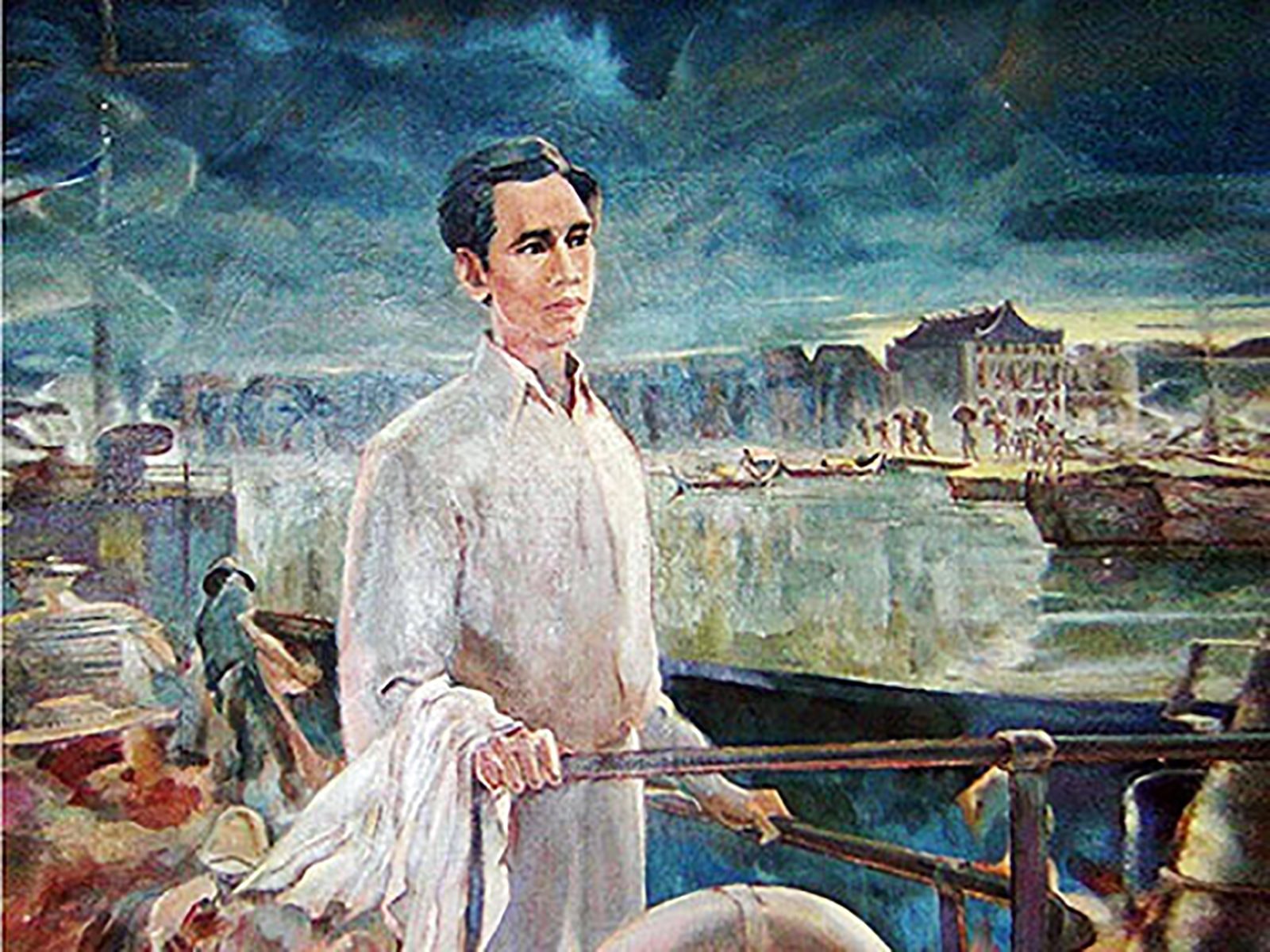
Not because of hatred for the actions of France in Vietnam that he denied the true civilization of France, he was passionate about comprehensively studying the French bourgeois revolution, French philosophers of the Enlightenment century such as Voltaire, Montesquieu, Rousseau... approaching the pinnacle of human culture, Nguyen Tat Thanh's knowledge became more abundant and rich.
It can be said that, beyond the French colonialists' intention to open schools to train their henchmen, Nguyen Tat Thanh had the opportunity to improve his awareness and intelligence, contributing to enhancing his patriotism later on.
Thus, the proud traditions of the homeland, the deep affection of the family as well as the patriotic thoughts of the teachers in Uncle Ho's youth were the cradle that formed and nurtured the noble qualities, great thoughts and ambitions of Nguyen Sinh Cung - Nguyen Tat Thanh to become Nguyen Ai Quoc - Ho Chi Minh.

